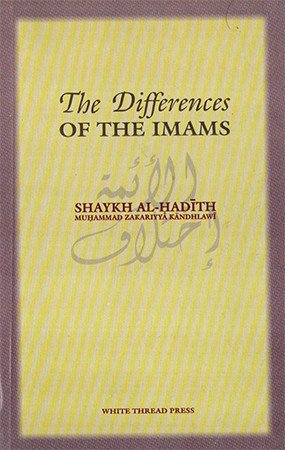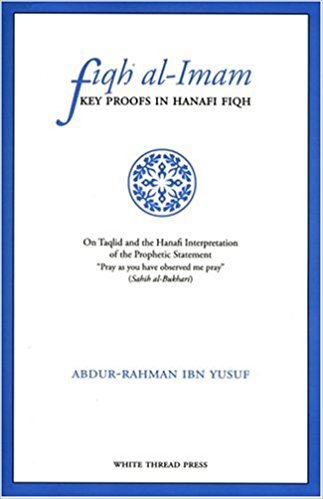Assalam Alaikum.
###################
[This is MY background, you can skip reading this part]
I'm 31 years old from Mumbai, India. My mother is a hanfi barelvi, married to a hanfi deobandi and my neighbour is an Ahl e hadith! Due to this I'm exposed to very contradicting opinions. They would almost never come to equal terms and always claim to be on the right path. I mostly followed Barelvism since my mother's family (all staunch barelvis) always had a good influence in our house. I never cared much about religion, until lately. Then I started reading about Islam and went to listen to sermons by maulanas, but in my country most sermons are generally bashing the other sect! This only increased my confusion! Then I stopped listening to sermons and started reading and watching youtube videos on specific topics of my interest, but still some confusion remains and thus I'm here, to seek help and knowledge from fellow brothers and sisters and increase my knowledge and perhaps end my confusion?!
###################
Now these are my questions related to figh
1) Barelvis and deobandis believe that following one of the 4 imams (Hanfi, Shafi, Hambli, Malki) is necessary. This leads me to a mental distress because these imams often have different rulings on the same topics.
Like I've heard (kindly provide citation for this if you can) that according to hanfi touch or kiss doesn't break wudhu, but according to Shaafi even touching does. Ahl e hadith say that if the touch/kiss is sexual, the wudhu will break, otherwise not. Quran categorically says to follow Allah and Prophoet Muhammad SAWS, and I kept following hanfi fiqh, but now I have mental unrest that I'm wrong and now follow Hadis.
Also, in namaz hanfi hold hands below navel for men and on chest for women, and shafi do both on chest (kindly provide citation for this if you can). Whereas Prophet Muhammad SAWS said pray as you see me praying to both men and women?
Say ameen loud in congregational prayers in Shafi and silent in Hanfi (kindly provide citation for this if you can)
Eating prawn in forbidden in Shafi and Maqruh in Hanfi (kindly provide citation for this if you can)
(Kindly provide more of such examples of contradicting verdicts to the same query according to different fiqhs, as I'm trying to compile a chart for educational purposes and future references and research on fiqhs.)
Now I followed Hanfi Barelvism all my life without giving much thought, but now since I started thinking, it has created a problem. We are taught that ALL four fighs are infallible and we HAVE TO follow one, you cannot mix and match (despite their infallibility). My problem is
how can all of them holding contradictory views to be simultaneously correct, as I believe they can be situationally right, but NOT simultaneously right?
How can we prove their infallibility? Since they are only humans, couldn't they err?!
What about the quran and hadith then?! Even when we have hadith to say otherwise, we are told that every sahaba saw Prophet doing things differently and thus by having 4 imams, Allah has preserved all of his sunnahs?! (citation?)
I imagined what will happen on Day of Judgement? Allahs says I'm told (kindly provide citation for this if you can) that he will do justice and everyone will be treated equally of their deeds, like likewise deeds will have likewise reward/punishment and that he is the best of judges. Now if all 4 are correct, wouldn't this contradict the basic premise of justice of same judgement for same deeds? Will he accuse a Shafi that his wudhu was broken and not hold Hanfi accountable for the same according to the above example?!
What is the correct opinion here? I'm talking the 4 imams are great scholars, but NOT infallible and thus, NOT worthy to be blindly followed, but rather to take the strongest opinion of the 4 imams (and more!) according to the Quran and Hadith. This will protect us, if they might have erred. Is my this opinion correct? What does this make me?! People now call me WahaabDa (Wahaabi), Gair Muqallid (non follower?) etc and that I'm misguided and even a Qafir to think that the 4 great imams are NOT infallible and disrespecting to them and thus a Qafir?! Is it so?! Is there a verse in Quran or Hadith that I have to follow one of the fiqhs, and somehow ignore their contradictions?
###################
Now these are my questions related to barelvism
I was (am?) a Barelvi and was told that in the times of Prophet Moses AS there was a women and she came and asked the Prophet to ask Allah when will she have children. Prophet Musa AS went to Mount Sinai(?) and Allah told him she is barren and will never have children. Phophet AS told so to the women. Then few years later when Musa AS went to the same place, the women saw her and told him O Musa AS you said I'm barren but I have (I forgot the exact number) many children now. Musa AS got angry and went to Mount Sinai and asked Allah about this. Allah said, O Musa sacrifice something from your body in my name and Musa AS (I think) cut a part of his ear lobe. Then Allah guided him to go to a specific man (Barelvis say he was a Wali) and ask him to sacrifice a part of his body in Allah's name, and his cut his body's flesh(!) from arms, chest, and all over body and said in name of Allah, take all! Allah said that this Wali of mine was hungry and went to that village and said he who give me one chapati (food) O Allah give him One child, he who gives me 2 chapatis give him 2 children, 3.. and so on. This women when heard this, gave him ALL his chapatis (forgot the exact number) and in honour of this Wali, I (Allah) granted her children. (kindly provide citation for this if you can)
I accepted this ALL my life as a miracle of Wali, as we are taught since young age about such miracles in Barelvism. But recently I found this disturbing because of the self mutilation of the body and even doubted the authenticity of the story. Is there a citation that it actually happened?!
I've also heard about Walis having Superhuman abilities like walking on water, flying, etc being told to us. (Kindly provide more of such examples of superhuman abilities and 'miracles' of Walis, if possible with citation, as I'm trying to compile a chart for educational purposes and future references and research on Walis)
###################
[This is MY background, you can skip reading this part]
I'm 31 years old from Mumbai, India. My mother is a hanfi barelvi, married to a hanfi deobandi and my neighbour is an Ahl e hadith! Due to this I'm exposed to very contradicting opinions. They would almost never come to equal terms and always claim to be on the right path. I mostly followed Barelvism since my mother's family (all staunch barelvis) always had a good influence in our house. I never cared much about religion, until lately. Then I started reading about Islam and went to listen to sermons by maulanas, but in my country most sermons are generally bashing the other sect! This only increased my confusion! Then I stopped listening to sermons and started reading and watching youtube videos on specific topics of my interest, but still some confusion remains and thus I'm here, to seek help and knowledge from fellow brothers and sisters and increase my knowledge and perhaps end my confusion?!
###################
Now these are my questions related to figh
1) Barelvis and deobandis believe that following one of the 4 imams (Hanfi, Shafi, Hambli, Malki) is necessary. This leads me to a mental distress because these imams often have different rulings on the same topics.
Like I've heard (kindly provide citation for this if you can) that according to hanfi touch or kiss doesn't break wudhu, but according to Shaafi even touching does. Ahl e hadith say that if the touch/kiss is sexual, the wudhu will break, otherwise not. Quran categorically says to follow Allah and Prophoet Muhammad SAWS, and I kept following hanfi fiqh, but now I have mental unrest that I'm wrong and now follow Hadis.
Also, in namaz hanfi hold hands below navel for men and on chest for women, and shafi do both on chest (kindly provide citation for this if you can). Whereas Prophet Muhammad SAWS said pray as you see me praying to both men and women?
Say ameen loud in congregational prayers in Shafi and silent in Hanfi (kindly provide citation for this if you can)
Eating prawn in forbidden in Shafi and Maqruh in Hanfi (kindly provide citation for this if you can)
(Kindly provide more of such examples of contradicting verdicts to the same query according to different fiqhs, as I'm trying to compile a chart for educational purposes and future references and research on fiqhs.)
Now I followed Hanfi Barelvism all my life without giving much thought, but now since I started thinking, it has created a problem. We are taught that ALL four fighs are infallible and we HAVE TO follow one, you cannot mix and match (despite their infallibility). My problem is
how can all of them holding contradictory views to be simultaneously correct, as I believe they can be situationally right, but NOT simultaneously right?
How can we prove their infallibility? Since they are only humans, couldn't they err?!
What about the quran and hadith then?! Even when we have hadith to say otherwise, we are told that every sahaba saw Prophet doing things differently and thus by having 4 imams, Allah has preserved all of his sunnahs?! (citation?)
I imagined what will happen on Day of Judgement? Allahs says I'm told (kindly provide citation for this if you can) that he will do justice and everyone will be treated equally of their deeds, like likewise deeds will have likewise reward/punishment and that he is the best of judges. Now if all 4 are correct, wouldn't this contradict the basic premise of justice of same judgement for same deeds? Will he accuse a Shafi that his wudhu was broken and not hold Hanfi accountable for the same according to the above example?!
What is the correct opinion here? I'm talking the 4 imams are great scholars, but NOT infallible and thus, NOT worthy to be blindly followed, but rather to take the strongest opinion of the 4 imams (and more!) according to the Quran and Hadith. This will protect us, if they might have erred. Is my this opinion correct? What does this make me?! People now call me WahaabDa (Wahaabi), Gair Muqallid (non follower?) etc and that I'm misguided and even a Qafir to think that the 4 great imams are NOT infallible and disrespecting to them and thus a Qafir?! Is it so?! Is there a verse in Quran or Hadith that I have to follow one of the fiqhs, and somehow ignore their contradictions?
###################
Now these are my questions related to barelvism
I was (am?) a Barelvi and was told that in the times of Prophet Moses AS there was a women and she came and asked the Prophet to ask Allah when will she have children. Prophet Musa AS went to Mount Sinai(?) and Allah told him she is barren and will never have children. Phophet AS told so to the women. Then few years later when Musa AS went to the same place, the women saw her and told him O Musa AS you said I'm barren but I have (I forgot the exact number) many children now. Musa AS got angry and went to Mount Sinai and asked Allah about this. Allah said, O Musa sacrifice something from your body in my name and Musa AS (I think) cut a part of his ear lobe. Then Allah guided him to go to a specific man (Barelvis say he was a Wali) and ask him to sacrifice a part of his body in Allah's name, and his cut his body's flesh(!) from arms, chest, and all over body and said in name of Allah, take all! Allah said that this Wali of mine was hungry and went to that village and said he who give me one chapati (food) O Allah give him One child, he who gives me 2 chapatis give him 2 children, 3.. and so on. This women when heard this, gave him ALL his chapatis (forgot the exact number) and in honour of this Wali, I (Allah) granted her children. (kindly provide citation for this if you can)
I accepted this ALL my life as a miracle of Wali, as we are taught since young age about such miracles in Barelvism. But recently I found this disturbing because of the self mutilation of the body and even doubted the authenticity of the story. Is there a citation that it actually happened?!
I've also heard about Walis having Superhuman abilities like walking on water, flying, etc being told to us. (Kindly provide more of such examples of superhuman abilities and 'miracles' of Walis, if possible with citation, as I'm trying to compile a chart for educational purposes and future references and research on Walis)






 says in the Qur'an,
says in the Qur'an, used to pray tahajjud in his home and he used to move the leg of our mother 'Aisha
used to pray tahajjud in his home and he used to move the leg of our mother 'Aisha  to make space for performing Sajdah, while in prayer. Based on this Hadith, other Imaams have ruled that the touch mentioned in the above Ayah means sexual contact, not just a touch.
to make space for performing Sajdah, while in prayer. Based on this Hadith, other Imaams have ruled that the touch mentioned in the above Ayah means sexual contact, not just a touch.
 and since these scholars came later on, and since all the work back then was manual (searching the texts, quran, hadith, dictionary, commentary, etc), there were just way too many limitations on them, and despite that they did a very commendable job, but if there is a room for amelioration, then it should be ameliorated.
and since these scholars came later on, and since all the work back then was manual (searching the texts, quran, hadith, dictionary, commentary, etc), there were just way too many limitations on them, and despite that they did a very commendable job, but if there is a room for amelioration, then it should be ameliorated.